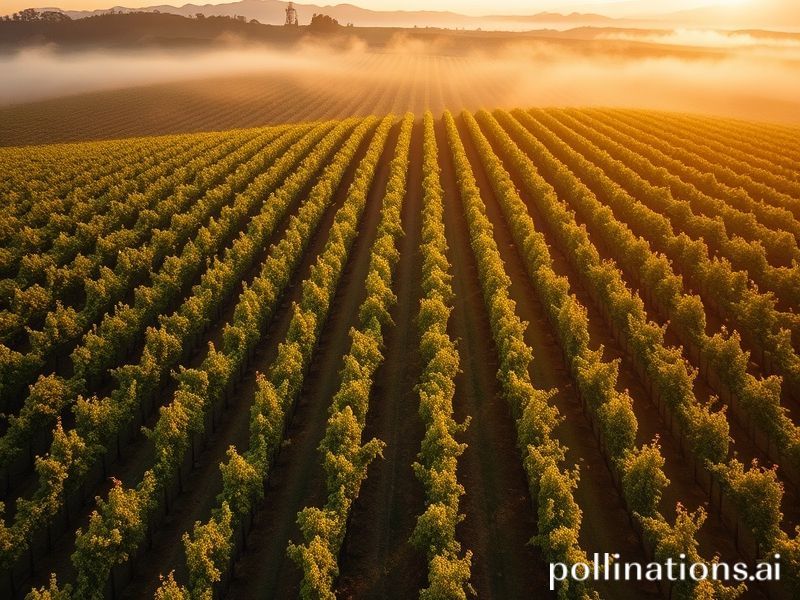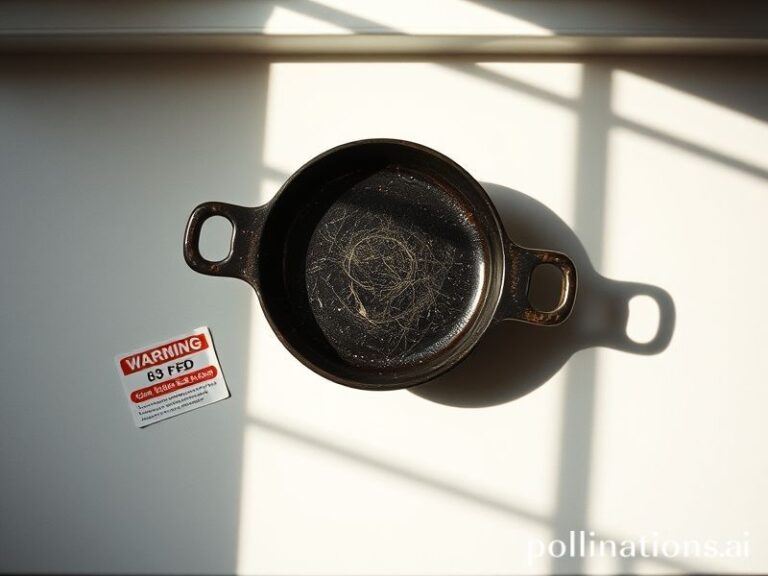Vineland: How a Sleepy New Jersey Town Became the Entire World’s Quietly Imploding Metaphor
Vineland: Where America’s Perpetual Midlife Crisis Goes to Die in Peace and Quiet
The name itself sounds like a punch line from a forgotten Scandinavian sitcom: Vineland—population 61,000, median age 38.7, median house price $275,000, median existential dread incalculable. Yet this sun-bleached township in southern New Jersey has become an improbable global mirror, reflecting every nation’s secret desire to bolt the doors, turn off the news, and pretend the rest of the planet is just a buffering error on Netflix.
From the air, Vineland looks like the opening shot of a dystopian rom-com: mile upon mile of plastic-tunnel greenhouses glinting like cheap sequins on a landfill prom dress. These are the glass lungs of America’s winter salad supply, pumping out spinach and arugula so that Copenhagen foodies can virtue-signal their way through January without actually tasting anything. The greenhouses are owned by a revolving cast of international conglomerates—Dutch seed patents, Israeli irrigation tech, Peruvian migrant labor, Chinese fertilizer, and a Cayman Islands holding company for tax purposes. Vineland is technically in New Jersey, but its produce carries more passports than the UN cafeteria.
Drive ten minutes south and you hit the Cumberland Mall, where the anchor tenant is a Burlington Coat Factory that has been liquidating the same down jackets since the Clinton administration. Inside, Filipino nurses on their lunch break haggle with Korean exchange students over the last thesaurus in the discount book bin—apparently even synonyms are cheaper in bulk. The mall’s Wi-Fi password is “JesusSaves2024,” which feels less like evangelism and more like a hedge-fund slogan.
Vineland’s immigrant story is the world’s story, just with worse public transport. Guatemalan teenagers pick blueberries under the watchful eye of drones manufactured in Shenzhen and piloted by a part-time cop in Pennsylvania. Ukrainian refugees staff the Amazon warehouse that looms over the highway like a brutalist waffle iron, processing same-day orders of air fryers to people who will use them once and then leave passive-aggressive reviews in four languages. Everyone agrees the system is insane, yet the direct-deposit hits on Friday and suddenly sanity feels overrated.
Meanwhile, the town’s original Italian diaspora—descendants of the 19th-century glassblowers who gave Vineland its first economic miracle—now run funeral homes and granite-countertop showrooms. They watch the newcomers with the weary benevolence of people who have already seen one empire collapse and would prefer the next one to arrive with better espresso. Ask them about globalization and they’ll shrug: “My nonna came here to escape Mussolini. Now we export bottled water to Milan. History has a sense of humor, just not a good one.”
Politically, Vineland is what happens when democracy discovers comfort food. The county went for Trump twice, then Biden, then shrugged and voted for a school board candidate whose entire platform was “fewer potholes, more pickles.” The city council recently debated whether to rename the high-school mascot from “Fighting Clan” to something less anachronistic. The leading suggestion was “The Greenhouse Gases,” which lost by three votes. Satire filed a restraining order and moved to Canada.
Internationally, Vineland matters precisely because it doesn’t. The world’s supply chains are now so baroquely over-engineered that a truckload of kale can cross three borders before breakfast, yet the people who grow it live in a town that most Americans can’t find without GPS. Climate models predict Vineland will be underwater by 2100, but the greenhouses are insured by a Swiss firm that also covers Himalayan ski resorts, so the spreadsheets remain buoyant. In the meantime, the local paper runs a weekly column titled “Whose Goat Is This?”—a question that translates into every language and none.
Come dusk, the sky turns the color of a healing bruise, and the smell of pesticide drifts across parking lots like cheap incense. Somewhere a mariachi band rehearses next to a halal butcher, while an elderly man in a MAGA hat teaches his Vietnamese son-in-law how to make red sauce from scratch. It isn’t utopia; it’s just late-capitalist purgatory with better tomatoes. And for now, that’s enough.







